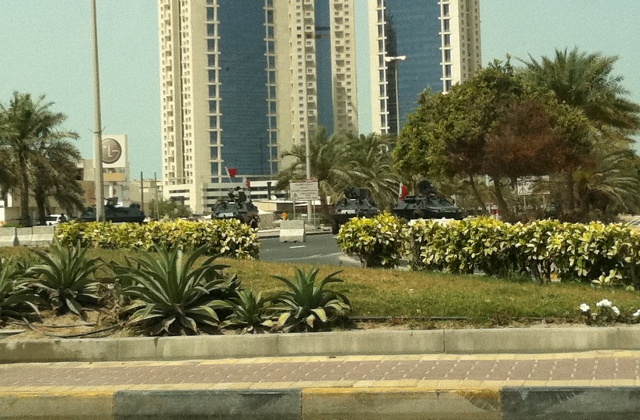Late last month, the monarchy here in this small but significant Gulf kingdom, led by Hamad bin Khalifa, showed for the first time its willingness to budge, albeit slightly. It launched reconciliation talks with members of the opposition – both Sunni, like the royal family, and Shia, representing the majority of the non-royal population. To bring you up to speed, earlier this year, swarms of the latter took to the streets of the capital, Manama, to protest what they said was corruption, nepotism, cronyism and just flat-out theft from the public purse. They were met with violent resistance from security forces, who on some occasions fired point-blank at the demonstrators. The forces then went one step further and swept the hospitals, arresting the injured who managed to flee, along with the doctors treating them who dared to speak out about their shock in seeing such injures in this previously calm country.

Without getting into too much detail, the protesters have a point. They deserve to be heard, and they deserve to have a voice. But in this country under its current structure, finding a platform for that voice is difficult if not impossible. International media, from day one, have had limited-to-no access to the opposition, specifically those who have been arrested. When I was here earlier this year amid the security clampdown, a military-imposed curfew (enforced by both Bahraini troops and visiting soldiers from the GCC countries, including Saudi Arabia) ensured that no cameras could record the nighttime sweeps of the poorer Shia suburbs of the city, during which an unknown amount of people from the opposition were disappeared. And the domestic media – notably Bahrain state television — dismissed the demonstrators essentially as hooligans with violent intentions. At the handful of funerals I attended, the mourners had the same message: we wanted to be heard, and this is what we got. They insist they will not be forced into silence, but do they have any other choice? There is no outlet in which to express themselves. Even the “reconciliation talks” are, by nature, restrictive.[youtube]http://www.youtube.com/watch?v=ddVGul52C9w[/youtube]
So in Britain, as News International Corp prints its last edition of the News of the World, I cannot help but think how lightly we in the West have taken the closing of such a significant publication. Nevermind its tabloid nature, that is not the point. Rupert Murdoch has reacted brashly, putting his corporate interests, his own legacy and his brand name over the integrity of hardworking journalists. Nearly all of those journalists were not at the paper when the hacking took place, and most of them have spent the past several years putting out a good paper. If there are people who committed criminal acts, they should be investigated (and if guilty, convicted) as such. But shutting down the entire publication is a dangerous move, and one with major ramifications.
In a society that values freedom of expression, efforts to silence it – across the board – should be condemned. While the people of Bahrain are far from having a publication like the News of the World, if we are going to criticize suppression here, we must feel confident to criticize it everywhere.

